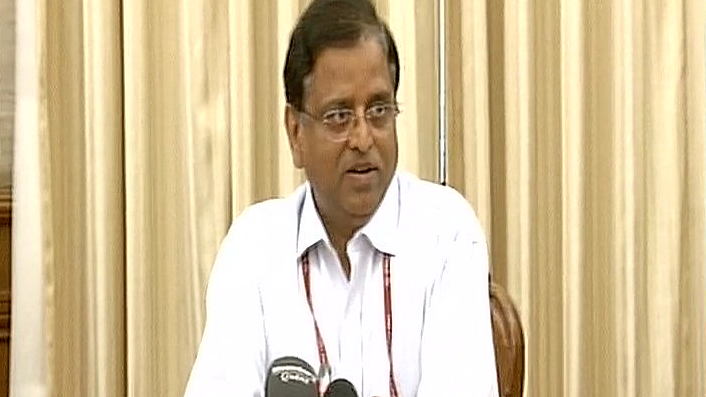The government maintained its gross borrowing target for the second half of the financial year 2017-18, but did not rule out an increase amid calls for a fiscal stimulus to boost a slowing economy
The gross borrowing target for the October-March period will be Rs 2.08 lakh crore as laid out in Budget 2017-18, Economic Affairs Secretary Subash Garg told reporters on Thursday. The government will sell bulk of the bonds in the initial three months until January. A decision on additional borrowing will be taken at the end of November or early December, he added.
India has already raised Rs 3.72 lakh crore or 64 percent of its gross borrowing target in the first half of the year, of which one auction of around Rs 15,000 crore is due on 29 September.
The Union Budget had pegged the Centre’s gross borrowing at Rs 5.8 lakh crore and net borrowing at Rs 4.23 lakh for FY18. The government borrows from the market to meet its yearly expenditure. Gross borrowing includes loan and interest repayment.
The Indian economy is facing its worst slowdown in three years as gross domestic product growth fell to 5.7 percent in the June-ended quarter. The gap between the government's spending and earnings has already reached 92.4 percent of the target.
Garg said the government is committed to maintaining its FY18 fiscal deficit target of 3.2 percent of GDP.
This will leave the finance ministry with limited room for a fiscal stimulus as shrinking private investment and credit growth drags the economy.
PSUs’ Capex Plans
The capital expenditure budget for all ministries and departments stands at Rs 3.75 lakh crore for the year. Another Rs 25,000 crore is expected to come in as a few central public sector enterprises (CPSEs) such as the National Highways Authority of India and state-owned oil and steel companies committed to increase their capital spending, Garg said.
We also discussed the possibility of CPSEs of using their low debt-equity ratio and also innovative instruments like InVITs and others for financing their additional capital expenditure this year as well as in the future.
Earlier in the day, Finance Minister Arun Jaitley reviewed the state of capital spending at public sector units.
Bank Recapitalisation
Various options are being considered for the capitalisation of banks, including recapitalisation bonds, to enable them to lend freely again, Garg said.
The government is still in talks with the Reserve Bank of India to raise additional surplus, he added.
(This story was originally published in BloombergQuint)
